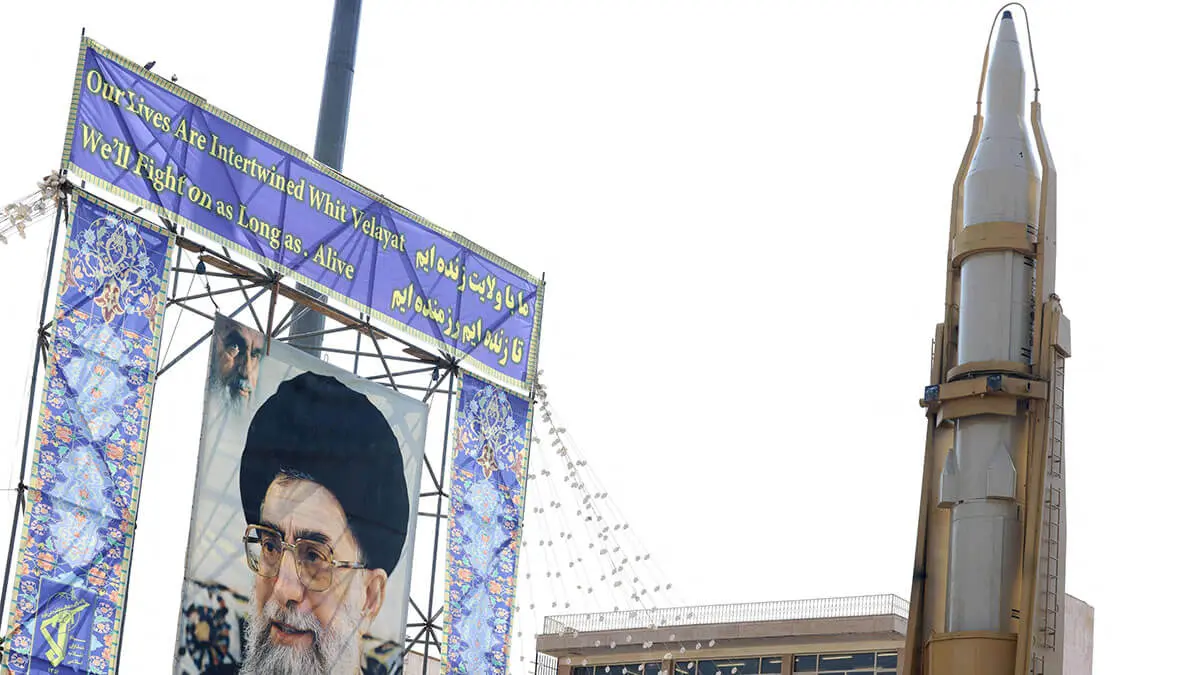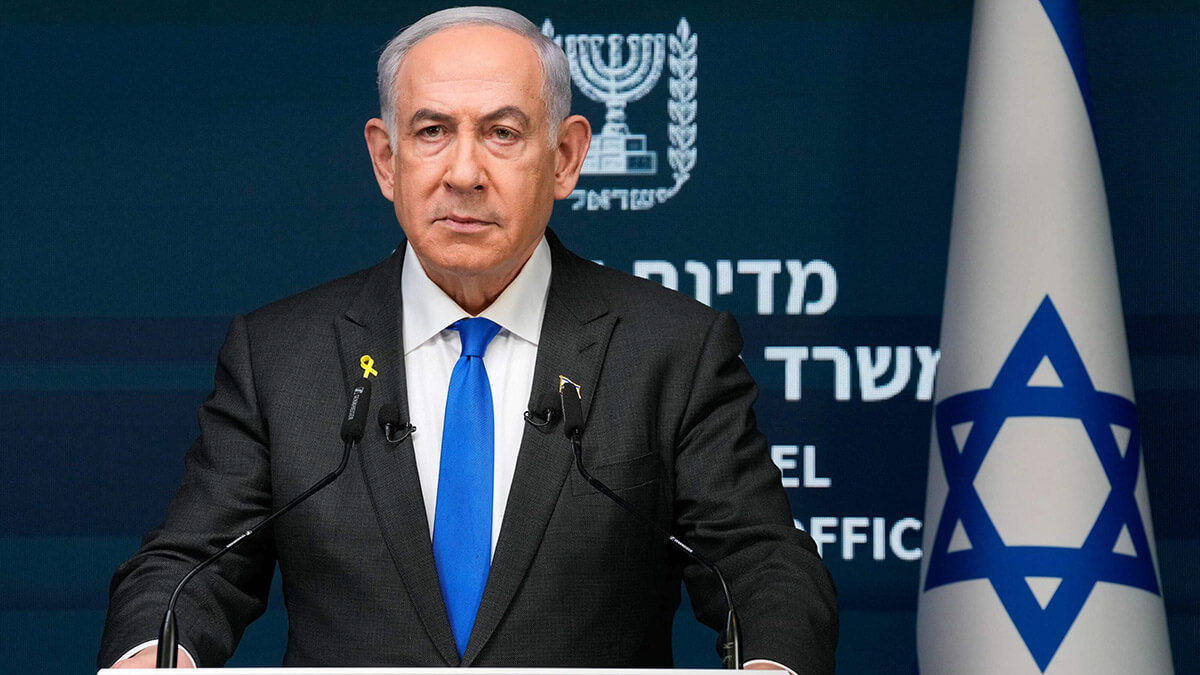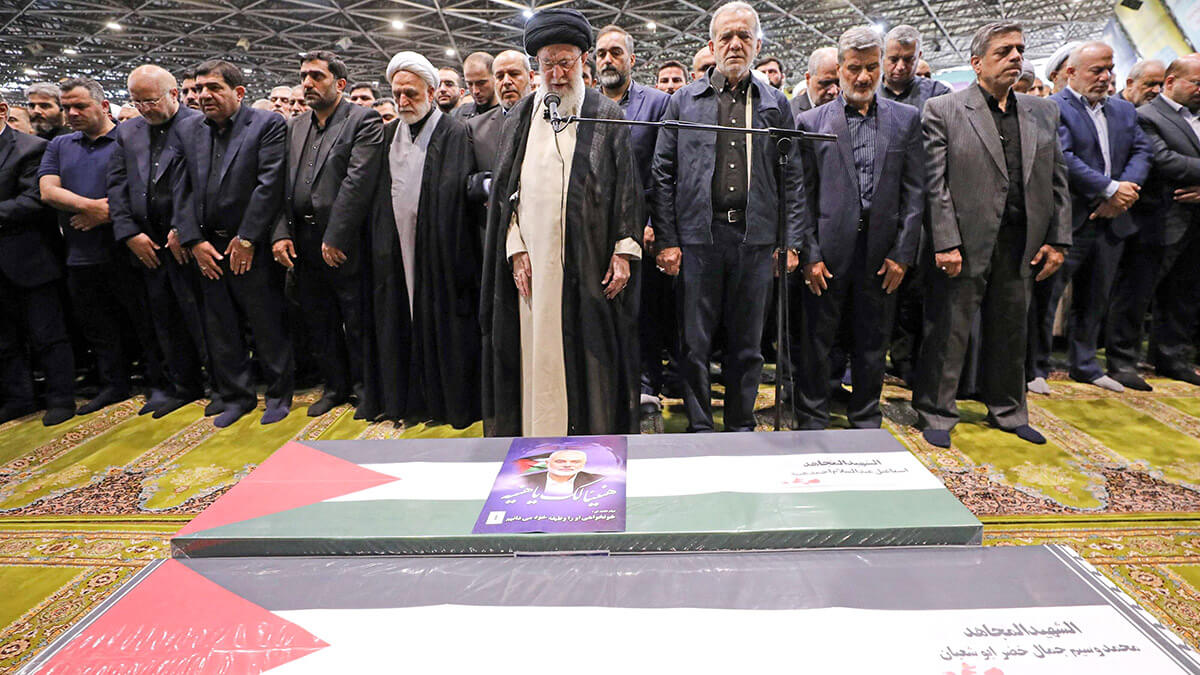Israel vows retaliation after massive Iranian missile attack

The Hamas attack of 7 October plunged the Middle East into a spiral of violence and tension with unpredictable consequences. A few days after a year of massacres by the terrorist group and the ensuing war in Gaza, the region remains mired in instability as it approaches a full-scale conflict.
Days after the assassination in Beirut of Hezbollah leader Hassan Nasrallah, the Islamic Republic of Iran has launched more than 180 ballistic missiles at Israel, setting off anti-aircraft alarms in virtually the entire country, including the cities of Tel Aviv and Jerusalem.
RAW FOOTAGE: Watch as Iranian missiles rain over the Old City in Jerusalem, a holy site for Muslims, Christians and Jews.
— Israel Defense Forces (@IDF) October 1, 2024
This is the target of the Iranian regime: everyone. pic.twitter.com/rIqUZWN3zy
Israeli military authorities sent messages to mobile phones warning the population and urging all citizens to seek shelter immediately. Despite advanced air defence systems, the Israeli army stressed the need to follow instructions from the Home Front Command. ‘You may hear explosions, which could be the result of interceptions or hits,’ it warned.
The missiles, most of them intercepted by air defence systems, killed one person in the West Bank and caused material damage in Israel, directly hitting areas of Tel Aviv and the Negev desert.
As Israeli army spokesman Daniel Hagari said, Iran's attack, the second since April, ‘will have consequences’. ‘We have plans and we will act at a time and place of our choosing,’ he added.

In the same vein, Prime Minister Benjamin Netanyahu vowed a response against Tehran. ‘Tonight, Iran has made a grave mistake and it will pay for it,’ the Israeli leader said at the start of the security cabinet meeting. ‘The regime in Tehran does not understand our determination to defend ourselves and to exact a price from our enemies,’ he added.
According to Axios based on senior Israeli officials, Jerusalem will launch a ‘significant retaliation’ within days that could target oil production facilities inside Iran and other strategic sites.
For its part, the Iranian regime threatened further offensives if Israel responds to the attack. If that happens, Israeli officials assure Axios that all options will be on the table, including strikes on Iran's nuclear facilities.
The US outlet reports that the Israeli response could include air strikes from fighter jets against air defence systems, as well as clandestine operations similar to the one that took out Hamas leader Ismail Haniyeh in Tehran two months ago.

US military forces in the area helped Israel and its air defences cope with the attack, while the Biden administration is coordinating with Israeli officials on next steps, according to US national security adviser Jake Sullivan.
‘This is a major escalation by Iran, a significant development,’ he told reporters at the White House. ‘We have made it clear that there will be consequences, serious consequences, for this attack, and we will work with Israel to make sure that happens,’ Sullivan concluded.

The massive attack began two hours after senior US officials warned of the offensive, ordering their diplomatic staff in Israel to take shelter and stay close to protected areas. Shortly before the attack began, Hagari warned at a press conference that Iran's expected attack would ‘probably be far-reaching’.
Just minutes before air raid alarms began to sound in Tel Aviv and many other cities, a terrorist attack by two Palestinians from Hebron left seven dead and 11 wounded at a tram station in Jaffa, south of Tel Aviv.
This is barely covered in world press.
— Ambassador Idit Rosenzweig-Abu (@IditAbu) October 2, 2024
Yesterday in Tel Aviv-Jaffa, two Palestinians from Hebron open fire in the tram and murdered 7 people among them Inbar Segev, who was protecting her 9 month old baby with her body. The baby in the carrier survived, she didn’t.
6 were… pic.twitter.com/79VQEftuu8
Iranian proxies against the Arab-Israeli coalition
Following the Hamas attack on 7 October, other militias backed and funded by the Islamic Republic of Iran began attacking Israel in ‘solidarity’ with Gaza. Hezbollah, the Houthis and pro-Iranian militias in Syria and Iraq joined the war, launching recurrent attacks on Israeli territory and pushing the Israeli government to take military action against these armed groups in Lebanon and Yemen.
The picture changed dramatically on the night of 14 April, when Tehran decided, for the first time, to attack Israel directly, opening a new phase in the conflict. This unprecedented attack gave impetus to the new regional scenario that had been years in the making following the signing of the Abraham Accords, based on a kind of Arab-Israeli coalition against threats from the Iranian regime, as countries such as Jordan and Saudi Arabia intercepted many of the missiles or drones launched against the Jewish state.








